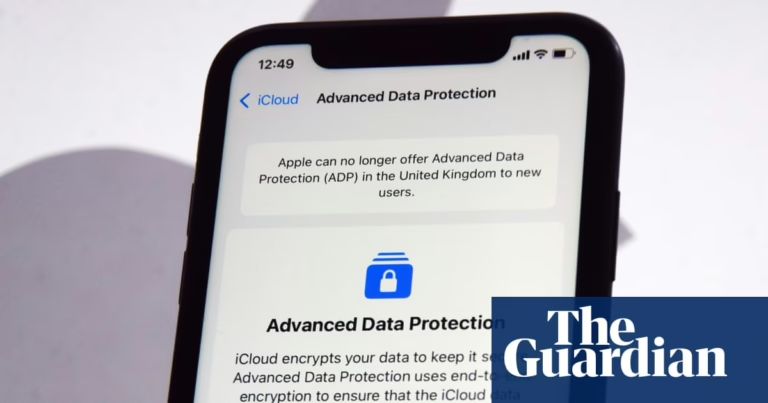The UK government has reignited its dispute with Apple by insisting on a backdoor to access the apple-siri-google-gemini-ai/” title=”… Explores Boosting Siri with Google's Cutting-Edge Gemini AI in Exciting New Partnership Talks”>tech giant’s cloud storage, specifically targeting data belonging to British users.
Previously, the Home Office sought to obtain data from Apple’s advanced data protection (ADP) service for users globally, a move that sparked tensions with the US administration.
According to a report by the Financial Times on Wednesday, the government has now issued a fresh directive, known as a technical capability notice (TCN), demanding access to encrypted cloud backups of UK residents.
A spokesperson for the Home Office declined to comment on operational specifics, including confirming or denying the existence of such notices, but emphasized the department’s commitment to taking all necessary domestic measures to protect UK citizens.
In February, Apple suspended ADP availability for new UK users and indicated that current users would eventually need to deactivate this security feature. However, services like iMessage and FaceTime continue to offer end-to-end encryption by default.
Tulsi Gabbard, the US director of national intelligence, revealed in August that the UK had retreated from its earlier demand to access data of American Apple customers. Former President Donald Trump had criticized the UK’s request, likening it to practices associated with China.
While Apple did not directly address the Financial Times’ report, the company expressed deep disappointment over its inability to provide ADP-a voluntary enhanced security option-to UK users. Apple reaffirmed its steadfast refusal to create any backdoor access in its products.
“Our commitment remains to deliver the highest level of security for our users’ personal information, and we hope to restore this in the UK soon. As we have consistently stated, we have never built, nor will we ever build, a backdoor or master key into any of our products or services,” the company stated.
Apple challenged the initial TCN through the Investigatory Powers Tribunal, which reviews allegations of unlawful conduct by domestic intelligence agencies. Although the Home Office attempted to keep the case confidential, a ruling in April led to partial disclosure confirming Apple’s appeal.
The specifics of the TCN remain undisclosed, as the Investigatory Powers Act prohibits recipients from revealing its existence. The Financial Times noted that the original TCN extended beyond ADP data, suggesting the government sought access to the more commonly used iCloud service.
ADP employs end-to-end encryption, ensuring that only the account owner can decrypt files such as photos and documents, with no access granted to Apple or any third party.
Privacy International, a nonprofit that legally contested the first TCN, warned that the new order could pose an equally significant threat to global privacy and security. They argued that compelling Apple to compromise end-to-end encryption in the UK would effectively undermine it worldwide by introducing exploitable weaknesses.
“Such vulnerabilities could be exploited by hostile nations, cybercriminals, and other malicious actors globally,” the organization cautioned.

















